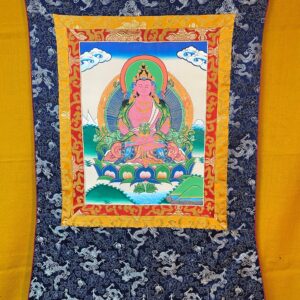The Karmic Consequences of Gaming: How Buddhism Interprets Loss and Gain
Gambling is often seen as a simple matter of chance—winning or losing money at the turn of a card, the roll of dice, or the spin of a wheel. From Buddhist perspective, however, gambling carries deeper significance. Beyond the material outcomes of profit or loss, there are karmic consequences that affect the individual’s mind, behavior, and spiritual progress. Buddhism teaches that every action, whether large or small, generates results that shape future experiences. Examining gambling through this lens reveals how wins and losses are not merely external events but reflections of inner states and choices.
Karma as Cause and Effect
Karma in Buddhism is not about external reward or punishment but reflects the natural law of cause and effect. Actions driven by greed, delusion, or unwholesome intentions lead to suffering, while those rooted in mindfulness and compassion foster well-being. Glücksspiel, beispielsweise auf Plattformen wie spinight, entspringt oft dem Verlangen nach schnellen Belohnungen und dem Streben nach materiellem Gewinn. Dies fördert negative karmische Muster, die sich über den Casino-Bereich hinaus auf weitere Aspekte des Lebens auswirken. Im Gegensatz dazu kann die bewusste Nutzung solcher Plattformen die Selbstwahrnehmung fördern und den Spielern helfen, schädliche Impulse zu mildern und ihr Handeln auf positive Ergebnisse auszurichten.
Winning and the Karma of Attachment
At first glance, winning in gambling seems fortunate. Yet Buddhism interprets such victories differently. A win may intensify attachment to wealth, inflating ego and encouraging further risk-taking. Instead of satisfaction, success in gambling often feeds craving, making the player desire more.
For example, a gambler who wins a significant amount may feel a surge of pride, believing they possess “luck” or skill beyond chance. This belief strengthens delusion and attachment, planting seeds for future disappointment. The karmic outcome is not the win itself but the mental habit it reinforces—dependence on uncertain rewards for happiness.
Losing and the Karma of Suffering
Loss in gambling typically produces frustration, anger, or despair. From a Buddhist view, these emotions reveal the impermanent and unreliable nature of external pleasures. Losses can deepen craving when individuals attempt to “chase” what they lost, leading to further suffering.
Consider a gambler who loses repeatedly but continues to play, convinced the next round will bring recovery. This cycle mirrors the Buddhist teaching of samsara—the endless repetition of desire and disappointment. The karmic result of such losses is not only financial but psychological, perpetuating dissatisfaction and reinforcing unskillful patterns of thought.
Practical Parallels in Everyday Life
The karmic dynamics of gambling extend beyond casinos. Similar patterns appear when people chase uncertain rewards in daily life—whether through risky investments, impulsive purchases, or reliance on chance rather than effort. The lesson remains the same: attachment to unpredictable outcomes breeds instability, while mindful choices grounded in wisdom bring balance.
Key Lessons from Buddhism on Gambling
Buddhist teachings highlight several lessons that apply to understanding the karmic consequences of gambling.
Essential insights include:
-
Winning can strengthen attachment, pride, and craving rather than bring peace.
-
Losing often generates anger, despair, and further attachment to outcomes.
-
Both winning and losing reinforce the cycle of dissatisfaction when driven by craving.
-
Gambling diverts energy from mindful, constructive actions that lead to genuine well-being.
-
True freedom comes not from luck but from cultivating wisdom, compassion, and mindfulness.
Transforming Loss and Gain into Awareness
While Buddhism discourages gambling, it also encourages learning from experience. A gambler reflecting mindfully on a win might recognize the fleeting nature of excitement, using it as a reminder of impermanence. Similarly, someone facing loss may view it as an opportunity to practice patience, humility, and detachment. In this way, even harmful habits can be transformed into lessons when observed through the lens of Dharma.
Conclusion
From a Buddhist perspective, the outcomes of gambling—whether loss or gain—are less important than the states of mind they generate. Wins risk deepening attachment, while losses often lead to suffering, both reinforcing cycles of craving and dissatisfaction. Karma teaches that actions rooted in greed and delusion carry consequences beyond the gaming table, shaping the future in subtle but profound ways. The path of Dharma suggests a different pursuit: letting go of dependence on chance and cultivating inner peace through wisdom and compassion. In doing so, individuals discover that true fortune lies not in fleeting victories but in freedom from craving itself.



